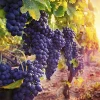683 careers found.
Winemakers plan, supervise and coordinate the production of wine or spirits from selected varieties of grapes. Scientific knowledge is playing an increasingly important role in winemaking and some winemakers specialise in the research and development of wine.
Winery workers are involved in growing grapes and making, bottling, warehousing, packaging, distributing and selling wine in Australia and overseas.
Wool classers sort, classify and grade wool into various commercial lines so that it can be sold at the best market price. They also manage and supervise wool-handling teams.
Word processing operators type, edit and print documents, using computers with word processing software programmes and printers.
Workplace relations officers manage employment conditions and related issues. Workplace relations officers aim to encourage employees and employers to work towards effective organisational practices. They may represent industrial, commercial, union, employer or other organisations in workplace and industrial negotiations.
Writers plan and write literary or other written work for publication or performance. Writers may create original pieces of written work, which can take the form of poetry, novels, short stories, biographies, blogs, plays or film, radio and television scripts. They may also write for multimedia distribution.Writers may specialise in fiction writing, general interest non-fiction, journalism, children's books, educational textbooks, historical writing and transferring oral histories into written form, corporate or training videos, technical writing, magazine writing, documentation preparation, freelance editorial services, helping others to prepare manuscripts for publication, scriptwriting, documentary writing, humour, copywriting, editi
Youth workers work with and support young people, either individually or in groups, by developing and facilitating programmes that address social, behavioural, welfare, developmental and protection needs.
Zoologists are biologists who study the structures, characteristics, functions, ecology and environments of animals to increase scientific knowledge and develop practical applications in wildlife management, conservation, agriculture and medicine. Zoologists usually specialise in one aspect of study such as entomology (insects), parasitology (internal and external parasites), ecology (environment of animals), ethology (animal behaviour), ichthyology (fish), mammalogy (mammals), ornithology (birds), herpetology (reptiles) or physiology (functions of animals).





